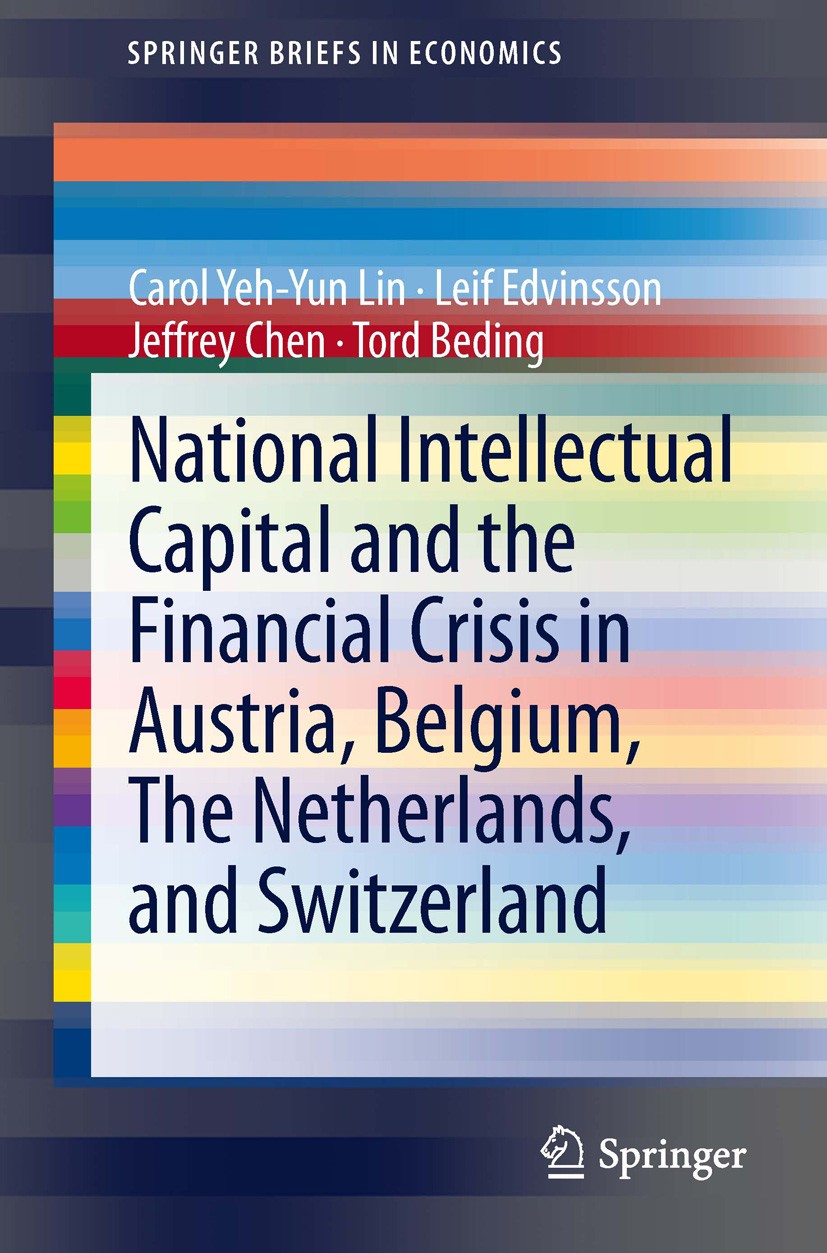| 书目名称 | National Intellectual Capital and the Financial Crisis in Austria, Belgium, the Netherlands, and Swi | | 编辑 | Carol Yeh-Yun Lin,Leif Edvinsson,Tord Beding | | 视频video | http://file.papertrans.cn/662/661452/661452.mp4 | | 丛书名称 | SpringerBriefs in Economics | | 图书封面 |  | | 描述 | .In the first decade of the twenty-first century, the biggest event of worldwide proportion was the 2008 global financial crisis, which was caused primarily by ineffective governance, failed surveillance systems, and implementation flaws. While fiscal and monetary policies succeeded in pulling many countries out of a financial freefall, most economies have performed beneath pre-recession levels as governments continued to struggle with their finances.. Examining the financial crisis from the viewpoint of intangible assets provides a different perspective from traditional economic approaches. National Intellectual Capital (NIC), comprised mainly of human capital, market capital, process capital, renewal capital, and financial capital, is a valuable intangible asset and a key source of national competitive advantage in today’s knowledge economy. The authors—pioneers in the field—present extensive data and a rigorous conceptual framework to analyze the connections between the global financial crisis and NIC development. Covering the period from 2005 to 2010 across 48 countries, the authors establish a positive correlation between NIC and GDP per capita and consider the impact o | | 出版日期 | Book 2014 | | 关键词 | Competitiveness; Economic policy; Financial capital; Human capital; Innovation; Intangible assets | | 版次 | 1 | | doi | https://doi.org/10.1007/978-1-4614-8021-1 | | isbn_softcover | 978-1-4614-8020-4 | | isbn_ebook | 978-1-4614-8021-1Series ISSN 2191-5504 Series E-ISSN 2191-5512 | | issn_series | 2191-5504 | | copyright | The Author(s) 2014 |
The information of publication is updating

书目名称National Intellectual Capital and the Financial Crisis in Austria, Belgium, the Netherlands, and Swi影响因子(影响力)

书目名称National Intellectual Capital and the Financial Crisis in Austria, Belgium, the Netherlands, and Swi影响因子(影响力)学科排名

书目名称National Intellectual Capital and the Financial Crisis in Austria, Belgium, the Netherlands, and Swi网络公开度

书目名称National Intellectual Capital and the Financial Crisis in Austria, Belgium, the Netherlands, and Swi网络公开度学科排名

书目名称National Intellectual Capital and the Financial Crisis in Austria, Belgium, the Netherlands, and Swi被引频次

书目名称National Intellectual Capital and the Financial Crisis in Austria, Belgium, the Netherlands, and Swi被引频次学科排名

书目名称National Intellectual Capital and the Financial Crisis in Austria, Belgium, the Netherlands, and Swi年度引用

书目名称National Intellectual Capital and the Financial Crisis in Austria, Belgium, the Netherlands, and Swi年度引用学科排名

书目名称National Intellectual Capital and the Financial Crisis in Austria, Belgium, the Netherlands, and Swi读者反馈

书目名称National Intellectual Capital and the Financial Crisis in Austria, Belgium, the Netherlands, and Swi读者反馈学科排名

|
|
|
 |Archiver|手机版|小黑屋|
派博传思国际
( 京公网安备110108008328)
GMT+8, 2025-12-31 23:50
|Archiver|手机版|小黑屋|
派博传思国际
( 京公网安备110108008328)
GMT+8, 2025-12-31 23:50


